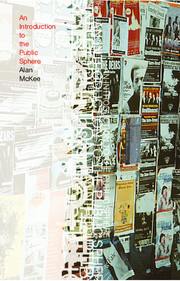Introduction
Published online by Cambridge University Press: 05 June 2012
Summary
It's common, both in everyday conversations and academic writing, to hear people suggest that the public sphere — or ‘the media’ — are degenerating. Frank Furedi's complaint in a newspaper article about politics and the media is typical:
The growth of a managerial political style [in Western countries] has gone hand in hand with a shift from politics to the personal. Personalities and individual behaviour dominate the presentation of contemporary politics. As public life has become emptied of its content, private and personal preoccupations have been projected into the public sphere. Consequently, passions that were once stirred by ideological differences are far more likely to be engaged by individual misbehaviour, private troubles and personality conflicts, such as Bill Clinton's affair. The private lives of politicians excite greater interest than the way they handle their public office.
(Furedi, 2004: 4)At the same time, other voices claim that public communication in Western societies is actually improving; as Catharine Lumby argues in her book Gotcha!:
The tabloidisation of our media has been accompanied by as many benefits as problems … the past few decades have seen an overwhelming democratisation of our media — a diversification not only of voices, but of ways of speaking about personal, social and political life … the contemporary media sphere constitutes a highly diverse and inclusive forum in which a host of important social issues once deemed apolitical, trivial or personal are now being aired.
(Lumby, 1999: xiii)- Type
- Chapter
- Information
- The Public SphereAn Introduction, pp. 1 - 31Publisher: Cambridge University PressPrint publication year: 2004

